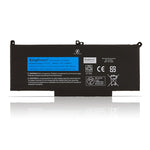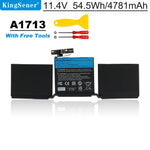You have no items in your shopping cart.
Which is more environmentally friendly, lead-acid batteries or lithium-ion batteries?

In today's highly developed society, the production and application of batteries have undoubtedly brought us a lot of convenience. But what follows is the environmental pollution problem faced by the battery industry.
These include environmental pollution caused by lead-acid batteries and lithium-ion batteries. Therefore, it is necessary for us to discuss the environmental issues related to it.
Lead-acid batteries and lithium-ion batteries
They are common battery types in life and can be used in various industries. Lead-acid batteries are rechargeable and can power devices. But due to their weight and high internal resistance, lead-acid batteries are bulky and their efficiency drops significantly under heavy use.
Lithium-ion batteries are also rechargeable but are lighter. The "intelligent" battery management system they have can provide us with information such as temperature monitoring, voltage data, power utilization, etc. In addition, lithium-ion batteries work more efficiently and have a longer service life than lead-acid batteries.
Which is more environmentally friendly, lead-acid battery or lithium-ion battery?
At present, lead-acid batteries are important energy storage rechargeable batteries. It plays a role in areas with high demand for power or current, such as electric vehicles, communications, and industry. Lead-acid batteries are widely used and can easily cause environmental pollution if they are not recycled correctly and reasonably.
Because once the heavy metal lead compounds contained in it are leaked, they may cause varying degrees of harm to the human body and the ecological environment.
In contrast, lithium-ion batteries contain no heavy metals and have a smaller impact on the environment. In addition, lithium-ion batteries have large capacity and long service life, and their average cost of use is lower than lead-acid batteries. Perhaps in the future, with the further development of the battery industry, lithium-ion batteries may even replace lead-acid batteries.
Therefore, when comparing the two, lithium-ion batteries are more environmentally friendly.
Safety of lead-acid batteries and lithium-ion batteries
Lead-acid batteries contain acid, which is corrosive. If you are likely to be exposed to such substances, you will need acid-resistant personal protective equipment to protect you from exposure.
The composition of lithium-ion batteries is relatively safe and does not present these dangers. They require no maintenance and the smart battery monitoring system will help you monitor and measure the temperature, charge current, discharge current and voltage of each battery pack.

A1496 KingSener Laptop Battery for Apple MacBook Air 13 inch A1466 2013/2014/2015 A1496 MD760LL/A MD761CH/A 7.6V 7150mAh
And the lithium-ion battery has overcharge protection function. It can effectively prevent thermal runaway if the battery temperature is abnormal or high during operation.
Dangers of lead-acid batteries
Lead is an important raw material for battery processing, but it also threatens environmental development and the healthy growth of children. Studies have shown that if a child's blood lead level is greater than 100 μg/L, it is very likely to cause harm to the human body. Lead will poison children's brains and destroy the function of suppressing impulses, making it easier to trigger social violence.
Additionally, lead-acid batteries may contain cadmium compounds. If crops such as rice and wheat absorb too much cadmium from the soil, their cadmium content will increase. If people eat this crop for a long time, it may cause chronic cadmium poisoning and cause harm to the human body.
Also worth noting is the waste sulfuric acid that may be emitted when lead-acid batteries are retired. It will seriously pollute rivers and oceans, and ultimately endanger humanity itself.
Do lithium-ion batteries pollute the environment?
Lithium-ion batteries use lithium metal or lithium alloy as electrode materials and use non-aqueous electrolyte solutions. The materials it uses do not contain heavy metals, so they are not likely to cause heavy metal pollution.
Secondly, lithium-ion batteries have a long service life and can reduce the frequency of battery replacement. This means that lithium-ion batteries will generate less solid waste and reduce their impact on the environment.
But it is worth noting that this is not to say that lithium-ion batteries are without shortcomings. Substances such as lithium cobalt oxide, copper, and nickel are used in the processing of lithium-ion batteries.
If the battery cannot be recycled properly, it will still have a certain impact on the environment. In addition, the processing of lithium-ion batteries will inevitably cause the volatilization of organic waste gas.
Generally speaking, lithium-ion batteries also pollute the environment, although the degree of pollution is not that serious. But it also requires our attention and attention. If we turn a blind eye to battery pollution, it will one day threaten the development of mankind itself.
Finally, if you want to know more about batteries, you can visit BatteryMall.com/support.








